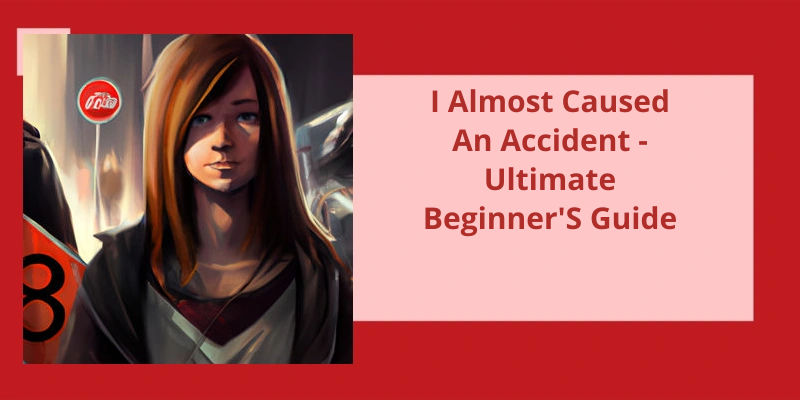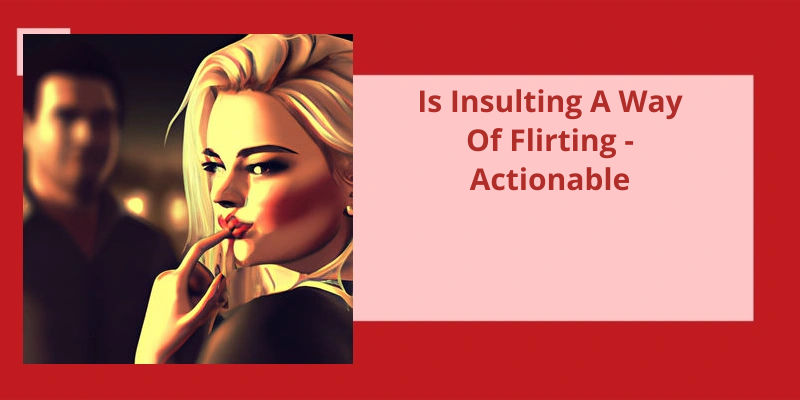In life, we often form deep, lasting connections with those we consider our best friends. These relationships provide us with a sense of security, trust, and understanding. They become our confidants, shoulder to lean on, and partners in crime. However, there may come a time when the dynamics shift, and our once cherished best friend turns mean. It can be a bewildering and hurtful experience, leaving us feeling lost and unsure of how to navigate this new terrain. Understanding and managing these changes can be challenging, but it’s crucial for our own well-being and the potential of salvaging the friendship. The first step is to reach out to our friend, expressing our desire to repair the relationship and discussing what may have led to this transformation. This direct approach may feel daunting, as the conversation could become uncomfortable and messy. Nonetheless, honesty and transparency are paramount, and meeting face-to-face allows for a genuine exchange of emotions, perceptions, and intentions.
Why Is My Friend Mean to Me but Nice to Everyone Else?
When Your Best Friend Turns Mean: Understanding and Managing the Changes
Have you ever found yourself wondering, “Why is my friend mean to me but nice to everyone else?”. It can be a perplexing and hurtful situation to navigate. The truth is, there could be various reasons behind this change in behavior. One possibility is that your friend is struggling with their own insecurities and by being mean to you, they believe they can make themselves feel better about themselves. This behavior may stem from a place of deep-rooted personal issues that they’re trying to cope with.
On the other hand, it could be that you’re unknowingly doing something on your end that’s annoying or upsetting your friend. It’s important to reflect on your actions and consider if there are any behaviors or habits that may be causing tension between you two. Open and honest communication is key in resolving conflicts and maintaining a healthy friendship. Approach your friend in a non-confrontational manner and express your concerns. This can be an opportunity for both of you to grow and understand each other better.
It’s also worth noting that friendships, just like any other relationship, undergo changes over time. People evolve and their priorities may shift. It’s possible that your friends changed behavior is a result of their own personal growth or changing interests. While it can be hard to accept, it’s important to acknowledge that relationships aren’t static and they require effort from both parties to adapt and maintain.
When faced with a friend who’s mean to you but nice to others, it’s essential to prioritize self-care. Don’t allow yourself to be treated poorly or emotionally manipulated. It’s okay to set boundaries and distance yourself from toxic dynamics. Surround yourself with a supportive network of friends and loved ones who appreciate and respect you for who you are. Remember that you deserve to be treated with kindness and respect, and don’t hesitate to seek professional help if necessary.
Signs of a Toxic Friendship and How to Identify Them
- Lack of support or encouragement
- Constant criticism or put-downs
- Jealousy or resentment
- Manipulative behavior
- Controlling or possessive tendencies
- Disrespectful or dismissive attitude
- Emotional or physical aggression
- Consistently negative or pessimistic outlook
- Difficulty in setting boundaries
- Feeling drained or exhausted after spending time together
- Constant drama or conflict
- Lack of trust or reliability
- Feeling guilty or anxious about the friendship
- Ignoring your needs or interests
- Difficulty in being yourself around them
- Feeling isolated or alone when in their company
However, there are certain red flags that can help you identify if someone is a bad friend. Pay attention to their actions and behaviors, as they often speak louder than words.
How Do You Know if Someone Is a Bad Friend?
When Your Best Friend Turns Mean: Understanding and Managing the Changes
It can be a devastating experience when your best friend, someone you once trusted and cherished, suddenly turns mean. The shift in their behavior can leave you feeling confused, hurt, and betrayed. But how do you know if someone is a bad friend? What’re the signs to look out for?
One clear indicator of a bad friend is a genuine lack of trust. Trust is the foundation of any healthy friendship, and if you find yourself constantly doubting or questioning your friends intentions, it may be time to reevaluate the relationship. A good friend should be someone you can rely on, confide in, and feel safe with. If these qualities are lacking, it may be a red flag that this person isn’t the friend they once were.
Another sign of a bad friend is a growing feeling of unease or dislike toward them. While it’s natural for friendships to have their ups and downs, if you find yourself consistently feeling uncomfortable or unhappy in their presence, it may be an indication that something isn’t right. Pay attention to your intuition and listen to your inner voice. Your feelings are valid, and they shouldn’t be ignored.
It can be difficult to recognize abusive behavior in people you love or trust. Sometimes, a friend may exhibit mean or hurtful behavior, making you question your own worth and value. If you find yourself constantly feeling belittled, criticized, or manipulated by a friend, it’s important to acknowledge these signs of emotional abuse. A healthy friendship should uplift and support you, not tear you down.
Communication is key in any relationship, including friendship. If your attempts at open and honest communication with your friend are met with defensiveness, dismissal, or gaslighting, it may be a sign that they aren’t willing to take responsibility for their actions. A good friend should be willing to listen, apologize, and make amends when necessary. If they consistently fail to do so, it may be time to reevaluate the friendship.
Ultimately, recognizing the signs of a bad friend is the first step in managing the changes in your relationship. It’s important to prioritize your own well-being and surround yourself with people who genuinely care about you. Ending a friendship can be difficult, but sometimes it’s necessary for your own growth and happiness. Trust yourself and your instincts, and remember that you deserve to be treated with kindness, respect, and love.
Source: Bad Friends: Signs To Look For – WebMD
It’s not uncommon for even the closest of friends to have moments when their words or actions come across as rude. When faced with such situations, it’s important to address the issue head-on. One effective approach is to have an open and honest conversation with your friend, expressing how their comments have been patronizing and hurtful. By providing specific examples and calling them out on their unsupportive behavior, you can hope to find a resolution and strengthen your friendship.
What to Do When Your Best Friend Is Being Rude?
When faced with the situation where your best friend starts displaying rude behavior, it’s important to take a proactive approach. One of the first steps to address this issue is to open up a conversation with your friend. Clearly and calmly express your feelings, explaining how their comments or actions are hurtful. By honestly communicating your emotions and providing specific instances that have impacted you, you can emphasize the significance of their behavior.
Furthermore, it’s essential to address their unsupportive behavior by calling them out on it. Make it clear that their actions aren’t aligned with the foundation of a healthy friendship. Allow them the opportunity to reflect on their behavior and understand the consequences of their words. Acknowledging these issues head-on can help prevent further damage and allow for potential growth and understanding in the friendship.
Another useful strategy is to set clear boundaries. Clearly express what you find acceptable and unacceptable in terms of behavior and communication. By establishing boundaries, you’re asserting your self-worth and signaling that you won’t tolerate mistreatment or disrespect. This can help your friend understand the seriousness of their actions and encourage them to reevaluate their behavior.
Seeking support from other friends or trusted individuals can also be beneficial. Discussing the situation with someone you trust can offer a fresh perspective and provide you with guidance on how to handle the situation. Additionally, having a support system can help you navigate the emotional challenges that may arise during this process.
If your friend continues to be mean and displays no willingness to change their behavior or show remorse, it may be necessary to reevaluate the friendship. Sometimes, people grow apart, and it may be healthier to distance yourself from someone who consistently displays hurtful behavior. Remember, prioritizing your well-being and surrounding yourself with positive influences are crucial for personal growth and happiness.
When faced with a best friend who turns mean, it’s important to address the issue directly and communicate your feelings. Calling them out on their unsupportive behavior and setting clear boundaries can help facilitate change within the friendship. Seeking support from others and considering the possibility of distancing yourself from the friendship if necessary are also viable options. Remember, healthy friendships should uplift and support one another, and it’s essential to prioritize your own well-being.
When a Friend Is Constantly Rude?
When a friend is constantly rude and disrespectful towards you, it can be a hurtful and distressing experience. It’s important to understand that maintaining a healthy and positive friendship is built on mutual respect and support. If your friend continues to disrespect you even after multiple discussions, it’s better to prioritize your well-being and distance yourself from their undermining and condescending words.
Continually subjecting yourself to a friend who consistently belittles and mistreats you can only make you feel miserable and lower your self-esteem. Remember, your mental health should never be compromised for the sake of a friendship. Surrounding yourself with positive and uplifting individuals is crucial for your overall happiness and self-growth.
It’s essential to recognize that someone who constantly displays disrespectful behavior may not be capable of being a true friend. By staying away from this toxic dynamic, you’re giving yourself the opportunity to form healthier connections and find friends who truly appreciate and support you.
It’s also important to set boundaries and communicate your feelings assertively. If you find yourself constantly being put down by your friend, express your concerns and let them know how their behavior is impacting you. However, if they fail to acknowledge your feelings or continue their disrespectful actions, it may be necessary to reevaluate the friendship.
Remember, you deserve to be treated with kindness and respect in all your relationships. Surround yourself with people who uplift and empower you, rather than tearing you down. Dont be afraid to let go of toxic friendships and prioritize your own well-being.
Signs of a Toxic Friendship: In This Section, the Article Could Explore the Different Signs and Behaviors That Indicate a Friendship Has Turned Toxic, Such as Constant Belittlement, Manipulation, or Disrespect.
When Your Best Friend Turns Mean: Understanding and Managing the Changes
Signs of a toxic friendship: In this section, the article could explore the different signs and behaviors that indicate a friendship has turned toxic, such as constant belittlement, manipulation, or disrespect.
Recognizing signs of a toxic friendship is crucial in order to protect one’s emotional well-being and maintain healthy relationships.
What Is a Toxic Friendship Like?
A toxic friendship is like a heavy weight constantly dragging you down. It’s characterized by constant negativity, criticism, and disrespect. Your best friend, who was once your biggest supporter, suddenly turns mean and starts tearing you down instead of lifting you up. It feels like walking on thin ice, afraid of saying or doing something wrong that may trigger their anger or resentment. You may find yourself constantly questioning your own worth and doubting your abilities because of their constant put-downs.
It may be difficult to accept that someone you care about deeply has turned into a source of negativity in your life. However, recognizing the toxicity is the first step towards healing. Setting boundaries and communicating your needs and expectations can help establish a healthier dynamic. But if your friend continues to be mean and disrespectful despite your efforts, it might be necessary to reevaluate the friendship. Surrounding yourself with positive and supportive people is crucial for your well-being, and it’s okay to let go of toxic relationships.
Signs and Red Flags of a Toxic Friendship
In any friendship, it’s important to be aware of signs and red flags that might indicate a toxic dynamic. Some common signs include a consistent pattern of negative behavior, such as constantly belittling or criticizing you, being overly controlling or manipulative, and not respecting your boundaries or feelings. Other red flags may include making you feel guilty or ashamed for expressing your needs or interests, spreading rumors or gossip about you, or constantly putting their needs above yours. Recognizing these signs can help you understand when your best friend may be turning mean and allow you to take steps to manage the changes in your friendship.
Conclusion
When your best friend turns mean, it can be a challenging and confusing experience. Rather than avoiding the issue or letting it fester, it’s important to take proactive steps to address the situation. Reaching out to your friend and expressing your desire to repair the friendship is a crucial first step. By meeting up with your friend and being straight about what's going on, you create an opportunity for resolving conflicts, finding common ground, and potentially rebuilding the friendship. Ultimately, it’s through honest communication and mutual understanding that lasting friendships can overcome challenges and thrive.






